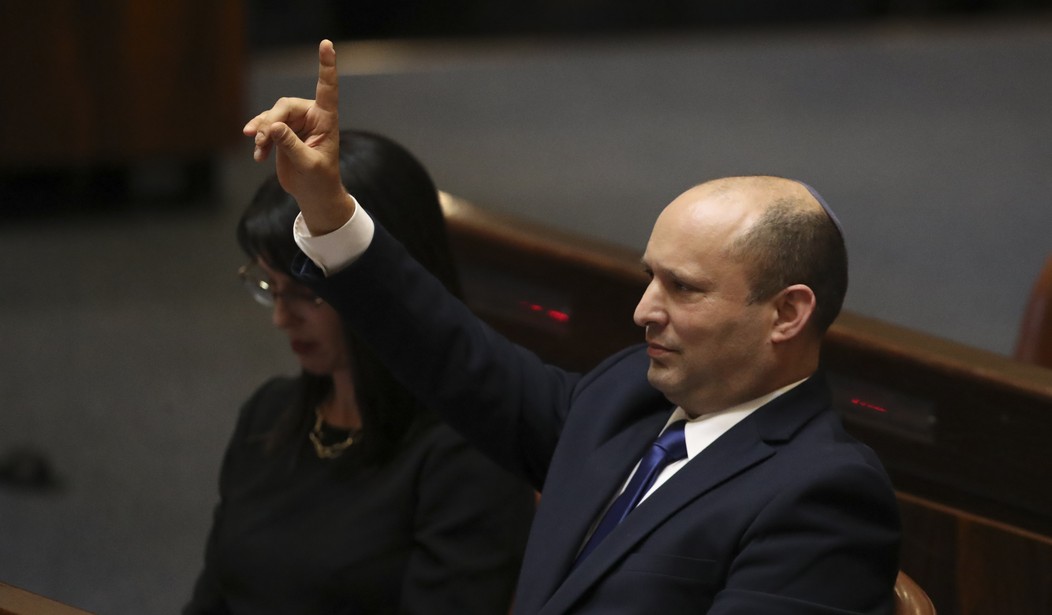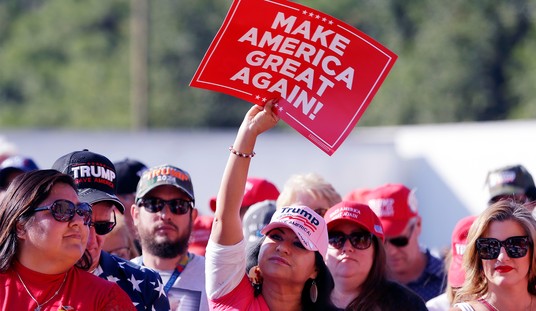Joe Biden met with new Israeli Prime Minister Naftali Bennett at the White House on Friday for about an hour in a wide-ranging discussion on security issues impacting both nations.
Biden said the two leaders discussed “the unwavering commitment that we have in the United States to Israel’s security” as well as “ways to advance peace and security for Israelis and Palestinians.”
They also discussed Iran and the prospects for an Iranian nuclear bomb — something that Bennett s rightly concerned about since Biden seems hell-bent on rejoining the nuclear deal.
He said they would “discuss the threat from Iran and our commitment to ensure Iran never develops a nuclear weapon… We’re putting diplomacy first and seeing where that takes us. But if diplomacy fails, we’re ready to turn to other options.”
Biden added that the US supported Israel developing “deeper ties” with its Arab and Muslim neighbors, though he did not use the term “Abraham Accords,” as seems to be administration policy toward the deals mediated by the previous administration.
Bennett is considered a hardliner on most issues, which must have made for some uncomfortable moments with Biden when it came to discussing settlements and Palestinians. But Biden has never been infected with the BDS bug, despite the fact that some of his strongest supporters are advocates of ending aid to Israel over the Palestinian question.
For his part, Bennett said that Israel was “unequivocally” with the U.S.
The American president also committed to replenishing Israel’s Iron Dome missile defense system, which saw heavy use during May’s 11-day conflict with Hamas in Gaza. And he said he’d direct his team to work toward getting Israel into the US visa waiver program, “and get that done.”
“The US will always be there for Israel,” Biden vowed. “It’s an unshakeable partnership between our two nations.”
Biden said that he and Bennett had “become close friends,” adding that “I’ve known every Israeli prime minister since Golda Meir, gotten to know them fairly well, and I look forward to establishing a strong personal relationship with you.”
We should expect Biden and Bennett to paper over any differences they have on settlement policy and concentrate on their shared concerns over Iran and extremist Muslims whose influence just skyrocketed thanks to the U.S. retreat from Afghanistan.
He said that Israel looks to do good in the world, but added that “in our region, doing good is not enough,” citing the threats posed by Islamic State, Hezbollah, Islamic Jihad, Hamas and Iranian militias.
“Israel has to be strong in order to do good… and we cannot lose sight for even one moment that we’re in the toughest neighborhood in the world.” He thanked Biden for “helping yet again to fortify Israel’s strategic advantage.”
Israeli politics is extremely unsettled at the moment. Bennett will hand power over to Yair Lapid, head of the centrist Yesh Atid party, in 2023 — if Bennett’s shaky, jury-rigged coalition lasts that long. Most Israel political observers looking at Bennett’s coalition of ultra-right and ultra-left parties don’t believe it will survive that long.










